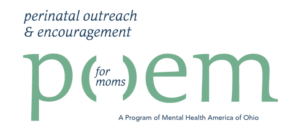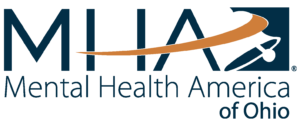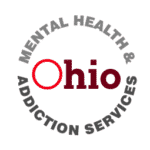
What is PPD?
Pregnancy and Postpartum Depression is the #1 complication of childbirth, affecting nearly 1 million people in the U.S. each year. Symptoms include a wide range of emotional and physiological reactions that can occur during pregnancy and/or about a year postpartum. Every person experiences PPD differently, but understanding the facts and myths about PPD can help you feel less isolated.
PPD is often more than depression. In fact, many people feel anxious, have scary thoughts, or other feelings they didn’t expect. PPD is an “umbrella” term that covers a wide range of maternal mental health disorders.
Symptoms of PPD
If you’ve found yourself having thoughts similar to the ones listed below, contact POEM about support options:
- I can’t think straight.
- I get angry so quickly.
- I can’t stop crying.
- I’m totally numb.
- I can’t fall asleep.
- I get so irritated with everyone, but especially myself.
- I worry constantly.
- My baby hates me.
- This is so scary.
- I’m so ashamed.
- I want to run away.
- I just can’t slow down.
- Is this who I am?
- This guilt is overwhelming.
- I’m having very scary thoughts.
- I’m going to feel like this forever.
- I’m in a fog all the time.
- Everyone else is a better mom than me.
- No one understands.
Contact POEM
If you are looking for resources in your area or just need to talk to another mom or birthing person who understands, our mom-to-mom support line is available Monday-Friday during regular business hours.
Baby Blues
Normal occurrence—not a disorder | 80% of new moms | Begins within the 1st week after childbirth | May last a week or two, but will subside on its own
- Weepiness
- Sadness
- Anxiety
- Mood instability
- Lack of concentration
Prenatal/Postpartum Depression or Anxiety
15-20% of new moms | Onset anytime from pregnancy thru the 1st year after childbirth
- Excessive worry
- Difficulty making decisions, feeling overwhelmed, can’t “Think Straight”
- Sleep difficulties—cannot/too much
- Feelings of sadness, guilt, hopelessness, phobias
- Physical symptoms/complaints without apparent cause
- Discomfort or detachment around the baby
- Changes in appetite
- Loss of interest or pleasure
Obsessive Compulsive Disorder
- Intrusive, repetitive, persistent thoughts
- Thoughts of harm coming to the baby
- Tremendous sense of horror and disgust of these thoughts often accompanied by avoidance behaviors in order to cope (i.e., hiding knives)
- Repetitive behaviors (counting, cleaning)
Panic Disorder
- Periods of extreme anxiety
- Difficulty breathing, chest pain, feelings of choking or smothering
- Hot/cold flashes, shaking, numbness, palpitations
- Fears of dying, going crazy
- Restlessness, irritability
- Excessive worry, including fear of more panic attacks
Psychosis*
Rare: 1-2 per 1000 | Typical onset 2-3 days postpartum | 5% suicide rate, 4% infantcide rate
- Hallucinations
- Delusional thinking
- Delirium, mania
*Requires Immediate Medical Care
Post-Traumatic Stress Disorder
- Recurrent nightmares
- Extreme anxiety
- Reliving past traumatic events (e.g., childbirth; prior emotional, sexual, or physical abuse/trauma)
Who is at risk for developing PPD?
Any person who is pregnant or has had a baby. However, there are certain factors that may increase your chances of developing PPD:
- History of PPD or other mental illness (this can mean you or one of your family members)
- Being a first-time parent
- Ambivalence about the pregnancy
- Lack of social support
- Lack of a stable relationship with your partner and/or parents
- Dissatisfaction with yourself
- Infertility
- Unrealistic expectations of parenthood
- Recent stresses
- Prior adverse reaction to contraceptives or severe PMS
- Being either a young or an older parent
Keep in mind that an increased risk doesn’t mean you’ll definitely experience pregnancy or postpartum depression. Likewise, having no recognizable risk factors does not mean you won’t. The causes and symptoms of PPD are different for every person.







